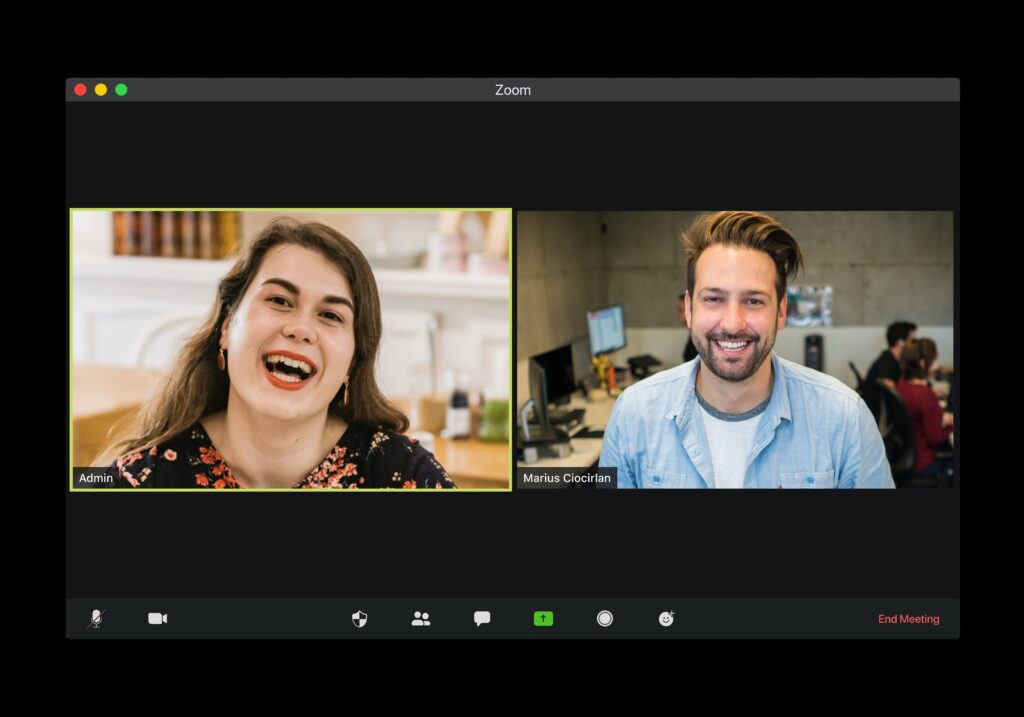

What Not To Do When Interviewing Software Engineers
source link: https://www.codility.com/blog/what-not-to-do-when-interviewing-software-engineers/
Go to the source link to view the article. You can view the picture content, updated content and better typesetting reading experience. If the link is broken, please click the button below to view the snapshot at that time.

Be the first to know
Sign up for a weekly dose of tech hiring news and updates.
Interviewing software engineers requires a great deal of skill, and even seasoned interviewers can learn how to improve their approach.
When software engineer positions are rare, candidates might forgive employers who don’t deliver a pristine interview experience. But now, with the employment of software engineers on the rise – and expected to increase 22% by 2030 – candidates can be more selective, which means employers need to work harder to avoid mistakes.
Improving your process for interviewing developers can positively impact your candidate experience, employer brand, and candidate engagement. Minor missteps in the interview process can even hurt your consumer brand reputation. According to CareerArc, 72% of job seekers have reported sharing bad candidate experiences on sites like Glassdoor, social media, or directly with a colleague or friend.
To avoid these ill effects, everyone interviewing software engineers should learn what turns off tech candidates and the role of transparency in candidate experience. And that’s just the tip of the iceberg. Keep reading to learn even more about what not to do when interviewing developers.
1. Don’t use a clunky, time-consuming application process
Most candidates want to see the tech in action, so if your online application has a poor user experience or is challenging to navigate, you can lose them before you even have them. Make sure your online application process is sleek, speedy, and, most of all, mobile-friendly.
When you’re evaluating the user experience of your recruiting technology, don’t stop at the application. Apply the same rigorous review to the entire online interviewing process – your virtual event platform, video interviews, and other online candidate assessment tools. Make sure all the tools you use to interact with and assess candidates deliver a consistent user experience.
 When you’re interviewing software engineers, remote work options are key for attracting top talent.
When you’re interviewing software engineers, remote work options are key for attracting top talent.
2. Don’t wing it
Software engineer candidates gravitate toward employers that have an organized recruiting process and actively manage time and expectations. HCI research found that 60% of job seekers report a negative candidate experience with the employers they engage with. In addtion, the report states that, “Job seekers who report having an extremely negative experience with an employer are most likely to say that their time was disrespected during the interview itself.”
Today’s software engineers know what they’re looking for: remote work. Codility’s State of Remote Work for Engineers survey found that remote work makes 76% of engineers happier at work, and 64% of engineers working remotely are less likely to leave their jobs. Before you begin interviewing software engineers, determine whether each position can be performed 100% remotely – and if not, decide whether it can be a hybrid position and determine if you’ll let employees choose when and how much they work on-site.
For the sake of fairness and efficiency, it’s best to have a standardized interview process that you use with every candidate for a particular role, but hiring for different tech roles may require a different approach. For insights on the nuances of front-end, back-end, and DevOps developers, read Codility’s eBook The Art of Hiring Developers.
You might also like: Streamline Your Technical Recruiting to Hire Full-Stack Developers
3. Don’t put “culture fit” over “culture add”
We all want to build teams that can work together cohesively, but putting too much stock in “culture fit” opens the door wide for unconscious bias to interfere with your hiring decisions. Looking for candidates who “fit” into your organizational culture often means reinforcing stereotypes, leaning on biases, and maintaining the status quo.
When interviewing software engineers, a profession disproportionately held by white men, taking proactive steps to reduce bias and improve diversity is a must. Tech talent often looks for positions where they can make meaningful contributions, work on exciting new projects, and help drive progress.
Assessing a tech candidate’s potential to contribute new perspectives and ideas to your culture – known as “culture add” – can help push your organization forward.
 Moving candidates through the recruiting process faster gives you better odds of hiring top talent when interviewing developers.
Moving candidates through the recruiting process faster gives you better odds of hiring top talent when interviewing developers.
4. Don’t take too long to make decisions or communicate.
Tech talent, like most other types of job seekers, wants to find a new employer fast. Nearly one in five Gen Z job seekers expect a decision – from the first interview to the final offer – in less than a week.
If you’re taking too long to evaluate candidates, they’re not going to keep waiting around for you. Moving candidates quickly through the recruiting process gives you better odds of hiring top talent before losing their attention to your competitors.
Some extra reading: Four Tips to Improve Your Developer Hiring Strategy – Fast
5. Don’t focus too much on the “job” and fail to sell the opportunity.
Like most professionals, tech candidates want to see a potential for long-term growth in their next role. It’s essential to make sure candidates understand the day-to-day job functions and that their skills are vetted for their ability to perform those functions, but don’t stop there. Be sure to talk with candidates about their career goals and how your position can help them progress toward those goals.
6. Don’t hire for degrees and previous employers.
When interviewing developers, get to know their abilities and aptitudes, rather than relying on the prestige or name recognition of their past accolades as proof of concept. Having attended a big-name university or held a position at a tech giant doesn’t mean they will be a good fit for your organization or your available job.
Use virtual skills assessments to get objective measurements of a candidate’s actual abilities and incorporate virtual whiteboarding sessions for technical interviews to gain deeper insight into how software engineer candidates think and work.
Better interviews mean better hires
Improving your interview game will undoubtedly give you a boost in your candidate experience and engagement, and it can also lead to better hiring outcomes. When interviewing software engineers, using your time and technology wisely help you evaluate candidates more effectively, making it easier to select the right talent to add to your organization.
Reviewing your interview process – and feedback from recent hires and current candidates – can give you even more insight into the small errors you might be making and allow you to change course. And tech candidates will notice your efforts.
Ready to take your remote hiring strategy to the next level? Then check out our Tech Recruiter’s Handbook – a step-by-step guide to interviewing and onboarding remote software engineers in today’s fast-paced job market.
Recommend
About Joyk
Aggregate valuable and interesting links.
Joyk means Joy of geeK